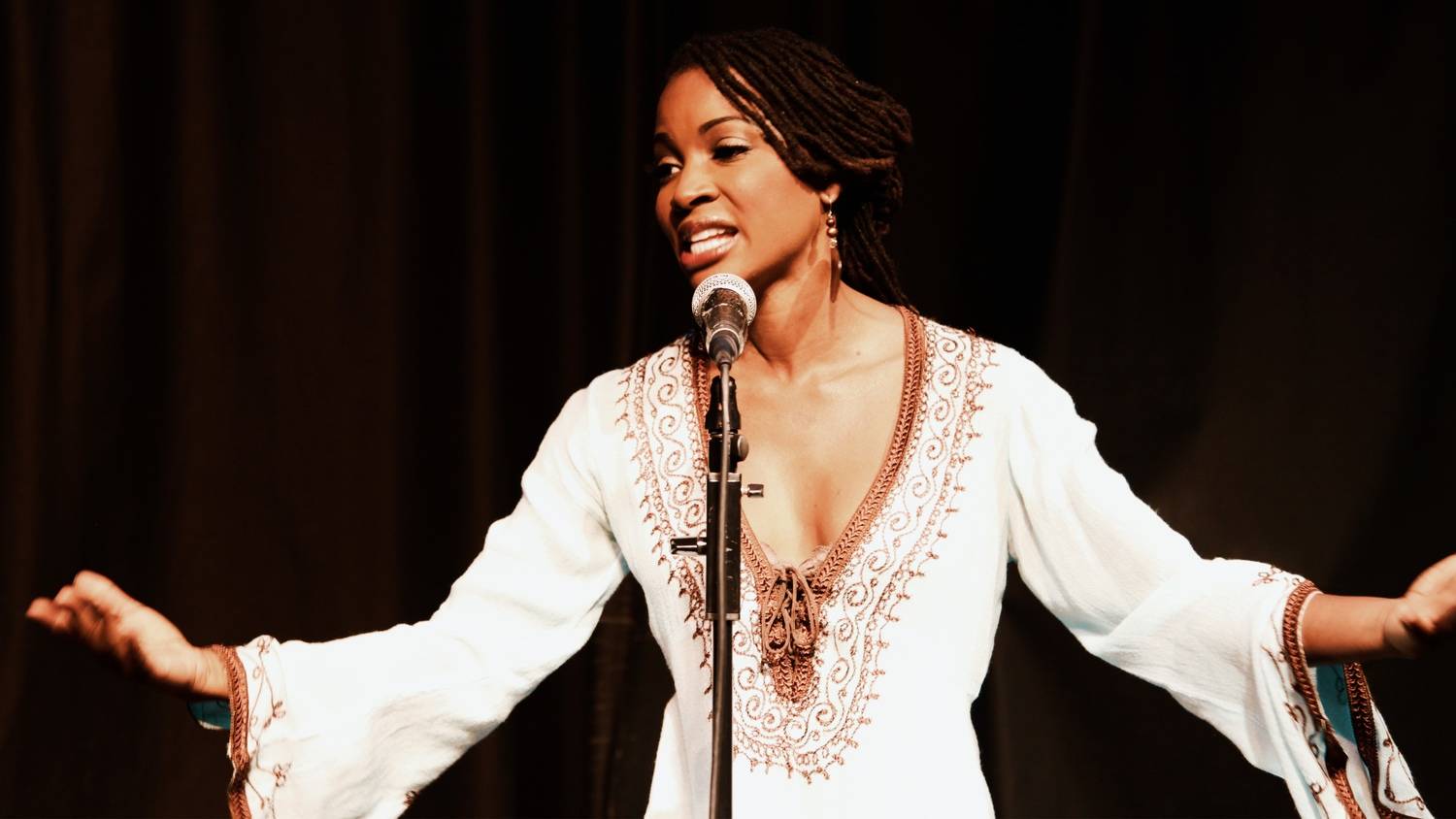By Chlotrudis Independent Film Society
Rating: 4.25 cats
Director: Charles Murray
Starring: Charlayne Woodard | Elimu Nelson | Michael Beach | Omari Hardwick | Shanola Hampton | Tamala Jones

Country: united_states
Year: 2013
Running time: 111
IMDB: http://www.imdb.com/title/tt1976003/combined
Jason says: “THINGS NEVER SAID, while it spends a lot of time on spoken word erformances, enough for it to be a major focus of the film and the way most people recommending it will describe it to others, isn’t necessarily about poetry, and the last few scenes tell that to the audience in no uncertain terms. It’s at that point that it becomes clear that writer/director Charles Murray has done something quite clever – he’s made a movie about something that can unfairly define a person that presents everyone involved as well-rounded characters. That is not something you see every day, and worth checking out.
“It does start with spoken word, though, specifically that of Kalindra Stepney (Shanola Hampton), a young woman in Los Angeles who has only been writing and orating for about a year, but is making plans to go to New York for a month, work as a waitress at the famous New Yorican Café and learn from all the great poets who frequent it. Her best friend Daphne (Tamala Jones) encourages it; her husband Ronnie (Elimu Nelson), not so much. Things get more complicated when she meets Curtis (Omari Hardwick), a non-performing poetry lover who appreciates that part of her life a lot more than Ronnie does. And he’s handsome, too.
“There’s a montage near the start of the movie that wordlessly summarizes Kalindra’s and Ronnie’s life together up until that point, and just for doing that, and doing it well, rather than having the characters tell each other things they already know or awkwardly work those details into conversation, it’s a nice move by Murray. That something eyebrow-raising grabs a couple of seconds but doesn’t quite dominate makes it an interesting sign of things to come, and that it’s not referenced immediately afterward lets it be part of a more complex situation than it might otherwise be. That’s a neat trick; while Murray doesn’t claim there’s a moral gray area for reprehensible acts, but he doesn’t allow them to wholly define them, and it carries through the film and applies to multiple characters.
“It’s interesting how this reflects on the three points of the triangle that the film is built around. Elimu Nelson, for instance, does an impressive job of making Ronnie a lot more appealing to the audience than just as the default option because he’s Kalindra’s husband; he manages to tie his charm into the character’s flaws rather than just use it to mask them. Omari Hardwick, meanwhile, is not exactly turning the charm on full-force as Curtis; unlike the usual guy who serves as temptation for the married-but-unsatisfied woman, his appeal takes a little time to build. Hardwick maybe doesn’t quite nail it completely,
but he builds just enough interest to keep Curtis interesting; he’s also got a nice thing going with Michael Beach as Curtis’s older brother.
“The film is going to rise and fall with Shanola Hampton, though, and she is pretty impressive as Kalindra. She nails the spoken-word segments, which is good; those scenes are about being memorable in-movie, and the whole thing would crash and burn twice if the character pouring her heart out didn’t work for the on-screen audience or the one in the cinema. But she impresses almost as much during the scenes in-between; there’s a weight of experience on bearing down on Kaldindra both from her own disappointment and what she’s seen from her own parents, but also an opposing inexperience and immaturity from how she’s never known anything else. Hampton takes what Murray gives her and handles it very well; there’s scenes where Kalindra instigates bad situations that avoid losing the audience, and other one where she’s right about something that walk the audience between not liking how she goes about it and liking the measured bluntness. A couple of those scenes are with Charlayne Woodard, who plays Kalindra’s mother Charlotte a bit broadly, but is an effective combination of horrible and pitiful for it.
“This is Charles Murray’s first feature – he’s written a fair amount of television – but he shows an impressively steady hand as a first-time director. The mentioned montage is an example of how he can throw a flourish or two in without the picture collapsing under the weight of gimmicks. He handles delicate topics well but isn’t afraid of mincing no words with Kalindra’s poetry. He does, perhaps, get a bit caught up with the spoken-word aspects of the film, setting a number of things up without paying them off, and the ending may be a bit on-the-nose, giving how opinionated the rest of the film has been without a lot of
direct lecturing. Then again, this is a movie quite literally about getting the words about how one feels out in the most forceful way possible, and a few earnestly encouraging words aren’t going to diminish my appreciation much.
“This review is in some ways incomplete; I like readers to be able to go into a movie as cold as I did and certain subjects can poison the well. Given how well Murray and company work against that happening, I don’t want to undermine their efforts. Murray and his cast & crew have done a nice job here, and deserve a bigger audience than an independent film that broaches uncomfortable subjects with a relatively unknown cast is likely to get. 4.25 cats
“Seen 14 September 2013 in AMC Boston Common #11 (first-run, DCP)”
